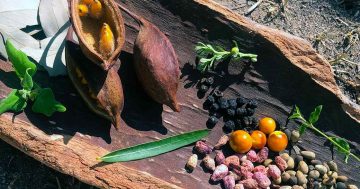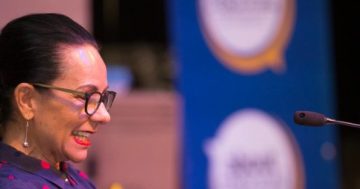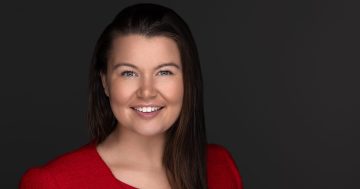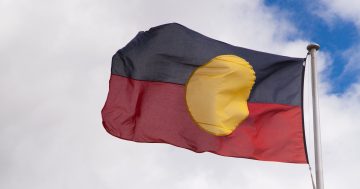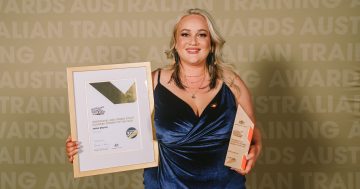
Welcome to Ngunnawal Country by Lynnice Church. Displayed at the AIATSIS Indigenous Art Market 2018. Image captured by Nina Gbor.
Today we’re celebrating both an international anniversary and a local milestone.
It’s the anniversary of the United Nations Declaration on the Rights of Indigenous People or UNDRIP. UNDRIP sets out how the Australian government should respect the human rights of Aboriginal and Torres Strait Islander peoples. It guides the implementation of other human rights agreements affecting Aboriginal and Torres Strait Islanders, such as the Convention on the Rights of the Child and the Convention on the Elimination of All Forms of Discrimination against Women.
In 2009, Australia gave its formal support to UNDRIP and committed to the human rights standards it contains.
Here in the ACT, the Human Rights Act (HRA) was amended in 2016 to affirm the distinct cultural rights of Aboriginal and Torres Strait Islander peoples, by drawing on UNDRIP.
The HRA says that Aboriginal and Torres Strait Islander peoples’ have the right to maintain, control, protect and develop their culture, and have their traditional connections with land, waters and resources recognised and valued.
These amendments reflected a long overdue recognition that the culture of Aboriginal and Torres Strait Islander peoples forms the bedrock of Australia’s distinctive character.
We are taking this recognition one step further today in launching the Commission’s first cultural safety charter. The charter was developed under the guidance of a group of strong leaders and members of the Aboriginal and Torres Strait Islander communities.
So what is cultural safety?
In this part of the world, the concept began with Maori midwives in the 1980s. According to the Australian Human Rights Commission Maori midwives saw the concept of cultural safety as a way of countering the alienation patients and midwives felt within the health system.
Cultural safety asks organisations and their employees to accept that colonial violence and dispossession are a root cause of inequality. Over recent years a number of Aboriginal and Torres Strait Islander organisations have developed cultural safety plans for their organisations.
In the Commission’s charter, we have defined cultural safety as providing clients, staff and colleagues with a safe, nurturing and positive environment where people are respected, and cultural rights and spiritual values accepted by Aboriginal and Torres Strait Island peoples are supported by the Commission’s values, processes and policies.
Recognising that those who provide publicly-funded services, such as the Commission does, are usually more powerful than the clients of those services is another important tenet.
In the same way, cultural safety encompasses the concept of safe service. It will be our clients who assess whether a service is safe for them, rather than our commissioners and staff.
The words ngattai yeddung – ‘listen good’ in Ngunnawal – form part of the charter. We will continue to listen to Aboriginal and Torres Strait Islander leaders and clients about whether we are meeting these standards of cultural safety or not.
While our HRA says that public authorities must respect the cultural rights of Aboriginal and Torres Strait Islander peoples, we also know that government, authorities and service providers in the ACT also have a long way to go.
The ACT has one of the highest rates of indigenous incarceration in the country.
We continue to have an unacceptably high level of Aboriginal and Torres Strait Islander children being placed in out-of-home care outside their extended families.
This is something which we have commented on before. The ACT must step into line with other jurisdictions and provide for external review of child protection decisions. Decisions about the care and protection of children and young people can be externally reviewed in most other Australian jurisdictions.
This week, a 12-year-old Arrente and Garrwa boy, Dujuan Hoosan addressed the UN Human Rights Council.
“I want adults to stop putting 10-year-old kids in jail,” he said.
“Adults never listen to kids like me, but we have important things to say.”
Echoing the Ngunnawal phrase ngattai yeddung, Dujuan’s words are another reminder that we must keep listening to Aboriginal and Torres Strait Islander leaders, clients and community members, and then act on what we hear.
Helen Watchirs is the President and Human Rights Commissioner, ACT Human Rights Commission.
Dr Watchirs will chair a panel in Canberra, on raising the age of criminal responsibility on 10 December, international human rights day. Details will be posted on the Commission’s Facebook page soon.













